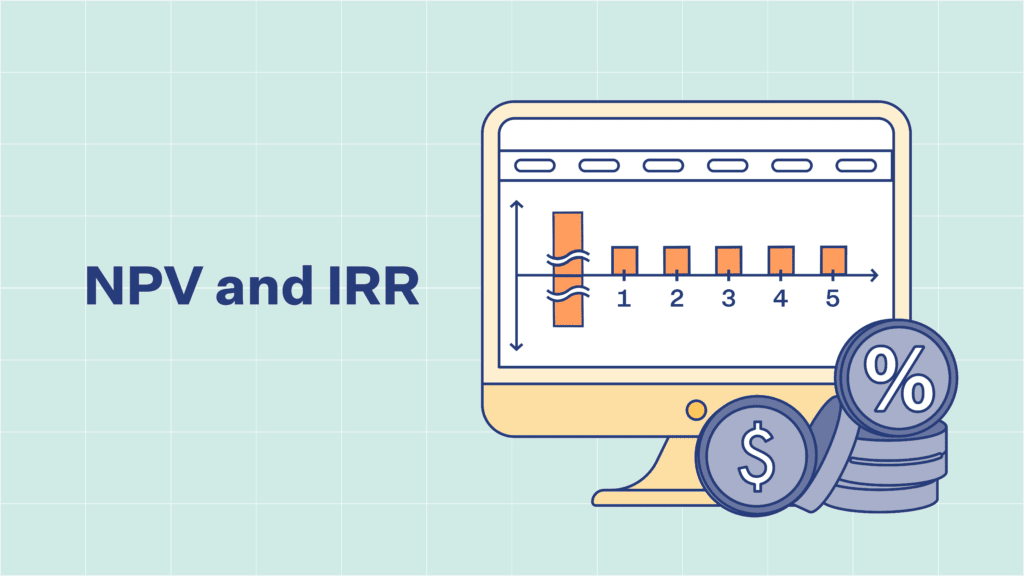Introduction
In today’s fast-paced business landscape, effective cash flow management is essential for sustaining operations, supporting growth, and navigating financial uncertainties. For companies in capital-intensive sectors like renewable energy and infrastructure, maintaining a steady cash flow can be particularly challenging. These industries face unique demands, with large upfront investments, extended project timelines, and complex funding structures that often lead to cash flow constraints.
Without strong cash flow management strategies, businesses can struggle to meet ongoing expenses, fund new projects, or respond to unexpected financial demands. Strategic cash flow forecasting and financial planning are necessary to anticipate cash needs, ensure liquidity, and maintain stability across long-term projects. By implementing the right tools and practices, companies can proactively manage cash flow, reduce financial risks, and enhance operational resilience.
In this guide, we’ll explore the top cash flow management strategies to help businesses improve their financial health, with a focus on optimizing cash flow forecasting, data insights, and operational efficiency. For companies seeking tools to support these efforts, FinWiser offers specialized models, like those in our online store, designed to help businesses in high-capital sectors achieve effective cash flow management.
Conduct Regular Cash Flow Forecasting
An essential component of effective cash flow management is conducting regular cash flow forecasting. By forecasting cash flow accurately, businesses can anticipate cash needs, avoid potential cash shortages, and proactively plan for expenses. This practice is especially crucial in high-investment sectors like renewable energy and infrastructure, where project timelines and financial demands are extensive.
To aid in cash flow forecasting, FinWiser offers specialized financial models, such as the Discounted Cash Flow (DCF) Valuation Model with 3 Years Actual and 5 Years Forecast – Oil and Gas. This tool supports businesses by providing clear insights into future cash flows, enabling better financial planning for long-term projects. Companies in industries with significant capital requirements, such as oil and gas, can rely on this model to create more accurate cash flow forecasts.
Additionally, FinWiser’s cash flow management tools include templates like the Biogas Plant (Waste to Energy) Financial Model, designed to support specific, high-cost projects. By incorporating such models, businesses can improve the reliability of their cash flow forecasting, reduce financial risks, and maintain stability even during market fluctuations.
Optimize Accounts Receivable and Payable
One of the most effective cash flow management strategies is optimizing accounts receivable and accounts payable. Managing these components strategically can significantly improve a business’s cash flow, helping companies avoid bottlenecks and maintain a steady stream of funds. For businesses in industries like energy and infrastructure, where extended payment terms and complex project cycles are common, this optimization is critical.
To improve accounts receivable, businesses can establish clear payment terms, offer incentives for early payments, and implement automated reminders. For example, a renewable energy company working on large-scale projects may have a 90-day payment cycle. By offering clients a 2% discount for payments within 30 days, the company encourages faster cash inflows, ensuring that working capital remains available for other operational needs.
On the other side, optimizing accounts payable involves negotiating favorable payment terms with suppliers and strategically scheduling payments. Let’s say an infrastructure company relies on multiple suppliers for building materials and equipment. By negotiating 60-day payment terms instead of the usual 30 days, the company can maintain liquidity longer, bridging the gap between cash inflows and outflows.
Using specialized models like FinWiser’s Discounted Cash Flow (DCF) Valuation Model and Biogas Plant Financial Model helps businesses in high-capital sectors develop forecasts that account for these optimized payment cycles, reducing cash flow strain and enhancing financial stability.
By carefully managing accounts receivable and payable, companies can streamline their cash flow management, improve liquidity, and position themselves to handle unforeseen financial demands.
Invest in Data Analytics for Cash Flow Insights
In today’s data-driven world, using data analytics to monitor and optimize cash flow can provide businesses with valuable insights into spending patterns, cash flow trends, and areas of potential improvement. This approach is especially beneficial for high-capital industries, where understanding financial patterns is crucial to maintaining operational stability and optimizing cash flow management strategies.
For instance, a waste-to-energy company that operates multiple facilities may notice seasonal fluctuations in revenue based on demand and operational costs. By utilizing data analytics, the company can identify patterns that reveal when cash inflows and outflows are at their peak, allowing it to allocate resources more efficiently during high-demand periods. Data analytics can also highlight areas where costs can be trimmed, such as energy or maintenance, to improve overall cash flow.
FinWiser’s expertise in financial data analytics provides businesses with advanced tools to monitor these trends effectively. By using models like the Biogas Plant Financial Model, companies can forecast cash needs based on specific data points, such as plant output and maintenance schedules, which provides a clear view of when expenses might spike or when cash reserves will need to be replenished.
Additionally, with tools like the Discounted Cash Flow (DCF) Valuation Model, businesses can project future cash flows based on historical data, helping them to make strategic financial decisions that align with their long-term goals. Through this data-driven approach, companies gain a comprehensive understanding of their cash flow forecasting and make informed choices that reinforce financial health and growth.
Maintain an Emergency Cash Reserve
Establishing an emergency cash reserve is a fundamental strategy in cash flow management. An emergency fund acts as a financial cushion, enabling businesses to handle unexpected expenses or revenue shortfalls without disrupting daily operations. For companies in sectors like renewable energy and infrastructure, where projects often have long cycles and high upfront costs, an emergency reserve is essential for maintaining stability.
Consider a solar energy company working on a large installation project. Midway through the project, unexpected regulatory changes lead to delays, impacting cash inflows. In situations like these, an emergency reserve ensures that the company can cover payroll, operational expenses, and other critical costs until project revenues resume. Without this buffer, the company could face operational disruptions, putting the project timeline—and potentially its reputation—at risk.
To determine the ideal reserve size, businesses should assess their industry’s cash flow volatility and operational costs. Many financial experts recommend setting aside three to six months’ worth of operating expenses in reserve, but high-capital industries may need larger buffers. Companies can use tools like FinWiser’s Biogas Plant Financial Model or the Discounted Cash Flow (DCF) Valuation Model to help forecast these requirements accurately, allowing them to build an emergency fund that aligns with their unique cash flow needs.
By proactively setting up an emergency reserve, companies can navigate unexpected financial challenges confidently, ensuring continuous operations and a stable cash flow even during unforeseen events.
Enhance Operational Efficiency
Improving operational efficiency is a powerful way to strengthen cash flow management. By identifying areas where costs can be minimized or processes streamlined, companies can reduce expenses, enhance productivity, and ultimately free up more cash flow for other strategic investments. This approach is particularly valuable in high-cost industries, where operational expenses can quickly impact cash flow.
For example, a construction company working on multiple infrastructure projects might face high costs in equipment maintenance and staffing. By analyzing its operational processes, the company could identify that certain tasks could be outsourced seasonally or that equipment maintenance schedules could be optimized to prevent costly repairs. Implementing these changes can lead to significant cost savings and better cash flow control.
FinWiser’s Operations Advisory services are designed to help businesses identify these types of efficiency improvements. For instance, by using the Discounted Cash Flow (DCF) Valuation Model, companies can evaluate the financial impact of proposed operational changes and assess how adjustments might strengthen their overall cash flow. Likewise, sector-specific models like the Biogas Plant Financial Model provide detailed insights into optimizing operational costs in energy-intensive sectors, allowing businesses to make data-backed decisions that enhance financial resilience.
By investing in operational efficiency, businesses can reduce cash outflows, improve their cash flow forecasting, and position themselves to maintain consistent liquidity in both stable and challenging market conditions.
Conclusion
Effective cash flow management is essential for business success, particularly in high-capital industries where financial demands are complex and ever-evolving. By implementing robust cash flow management strategies—such as regular cash flow forecasting, optimizing accounts receivable and payable, investing in data analytics, maintaining an emergency reserve, and enhancing operational efficiency—businesses can strengthen their financial resilience and ensure they are prepared for both opportunities and challenges.
FinWiser’s specialized tools and advisory services, like the Discounted Cash Flow (DCF) Valuation Model and the Biogas Plant Financial Model, offer powerful resources to support businesses in managing and optimizing cash flow. With tailored models and industry expertise, FinWiser helps companies in renewable energy, infrastructure, and other high-investment sectors make strategic, data-driven financial decisions.
For companies seeking to enhance their cash flow management and improve financial stability, consulting with financial experts like FinWiser can make a significant difference. Reach out today to discover how the right strategies and tools can transform your approach to cash flow and drive sustained business success.











